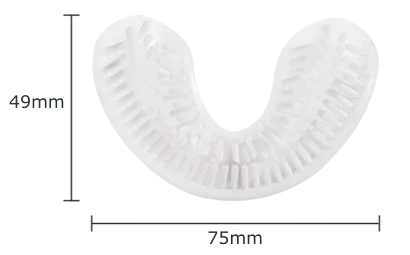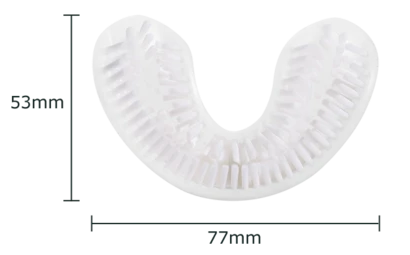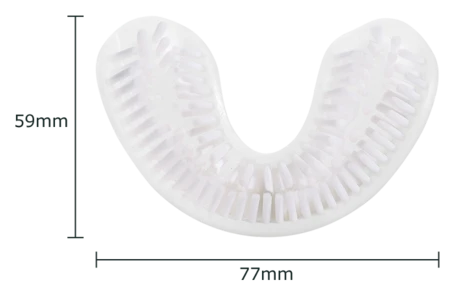
Dealing with Dental Anxiety in Children: A Parent's Guide
"Will it hurt? What if I have cavities? What if the dentist is mean?"
These are common questions that many children ask when facing a dentist appointment. Dental anxiety in children can transform a routine visit into a stressful ordeal. The unfamiliar environment, strange sounds, and fear of pain can amplify their anxiety. Understanding these fears and learning how to alleviate them is key to maintaining good oral health for your child.

What Causes Dental Anxiety in Kids?
- Fear of the Unknown: Children often fear what they don’t understand. The mystery surrounding a dentist appointment can cause significant anxiety.
- Previous Negative Experiences: If a child has had a painful or uncomfortable dental treatment, they may develop a fear of returning to the dentist. Even hearing about a sibling or friend's bad experience can instill fear.
- Parental Anxiety: Children pick up on their parents' anxieties. If parents express fear of the dentist, their children are likely to feel the same way.
- Fear of Pain: Even if a procedure is painless, the anticipation of potential pain can cause significant anxiety. The phrase "I hate the dentist" often stems from this fear.
- Lack of Control: Being in a dentist chair with someone working in their mouth can make children feel vulnerable and out of control, heightening their anxiety.
- Sensory Overload: The bright lights, loud noises from dental instruments, and strange tastes and smells in a dental office can overwhelm a child’s senses, causing discomfort and fear.
- Separation Anxiety: Young children might feel anxious about being separated from their parents during a dentist appointment, especially in an unfamiliar setting.
- Developmental Factors: Some children may naturally have higher levels of anxiety due to their temperament or developmental stage, making any new or unfamiliar situation, including a dental visit, more daunting.
Tips for Parents to Help Overcome Dental Anxiety
- Start Early: Introduce your child to dental visits at a young age to make them a regular and familiar part of their routine.
- Be Positive: Use positive language when discussing dental visits. Avoid words like "pain" or "hurt." Emphasize the health benefits of dental cleaning and good oral health.
- Role Play: Pretend to be the dentist at home, using a toothbrush and a mirror to "examine" your child's teeth. This can make the actual visit seem less intimidating.
- Instill Early Habits: Providing an effective toothbrush can make dental care fun and routine for your child. autobrush's U-shaped nylon toothbrush offers quick cleaning, removing 82% more plaque in just 30 seconds. With fun designs, music, and a timer, it helps build good habits and makes dental visits a breeze.
- Bring Comfort Items: Allow your child to bring a favorite toy or blanket to the appointment. Personal space and familiar items can provide comfort and reduce anxiety.
- Choose the Right Dentist: Select a pediatric dentist who specializes in treating children and has a child-friendly dental office environment. This can make a significant difference in how your child perceives the dentist.
- Stay Calm: Children often pick up on their parents' anxiety. Stay calm and reassuring to help your child feel safe. Practicing breathing exercises together can also help.
- Reward Bravery: Offer a small reward or treat after the visit to reinforce positive behavior. This can create a positive association with dental visits.
Additional Anxiety Tips for Parents
Beyond the basic tips, here are some additional strategies to consider:- Educate your child about the importance of oral hygiene to prevent gum disease and other issues.
- Overcoming fear can be a gradual process. Be patient and consistent with your efforts.
- Seek support from other people who have successfully managed their children's dental anxiety.
By understanding the root causes of dental anxiety and employing these tips, you can help your child overcome their fear of the dentist, especially when using a special needs electric toothbrush that makes brushing simpler and more comfortable. This will not only make dental appointments more pleasant but also promote lifelong oral health habits. Remember, a calm, positive approach combined with the right support can make all the difference in helping your child conquer their dental phobia.













































